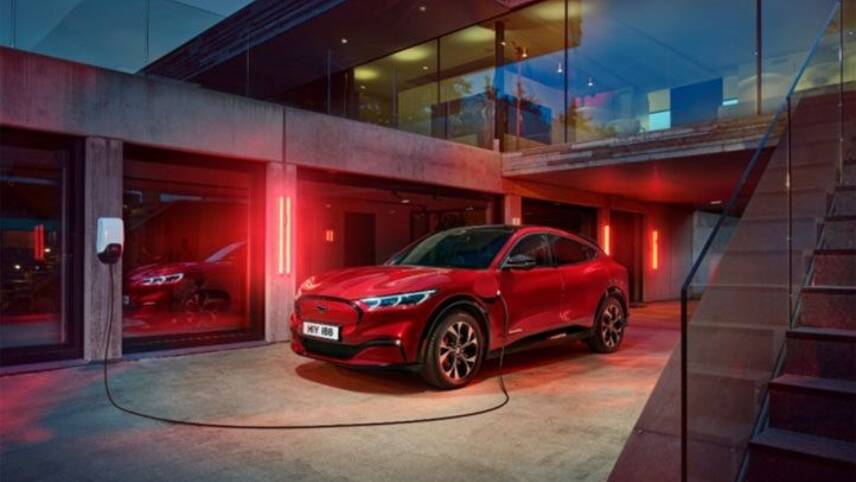Register for free and continue reading
Join our growing army of changemakers and get unlimited access to our premium content

Pictured: Ford's fully electric Mustang Mach-E
In a new business statement released today (17 February), Ford committed to ensure that all passenger vehicles produced and sold in Europe will be either all-electric or plug-in-hybrid with zero-emissions capabilities. Hybrid production will then be phased out through to 2030, after which point only pure electric models will be made.
Ford has committed to invest at least $22bn globally by the end of 2025 to support the transition to electric vehicles (EVs). This sum is around double its EV-specific allocation for the past five years.
One of the first projects to receive a share of this funding will be a major modernisation drive at Ford’s vehicle assembly facility in Cologne, Germany. This is Ford Europe’s largest, central facility. The investment will be used to transform existing assembly lines to produce a fully electric passenger vehicle and train staff accordingly. The new model will begin production at the plant in 2023 and Ford said it will explore the potential to add a second model in the longer-term.
“The decision to make the production and development site in Cologne the e-mobility centre for Ford in Europe is an important signal to the entire workforce,” Ford-Werke’s chairman of the general works council Martin Hennig said.
“It offers a long-term perspective for our employees and at the same time encourages them to help shape this electric future.”
Ford has also set aside funding to create and operate a new collaborative unit with Google. Called Team Upshift, the carmaker says the unit will “drive disruptive, data-driven opportunities”, but further details remain scarce at present.
Ford estimates that the transition will mean that two-thirds of the vehicles it sells globally will be hybrid or fully electric by 2030, significantly reducing its Scope 3 (indirect) emissions.
Jaguar Land Rover
The announcement from Ford comes shortly after Jaguar Land Rover (JLR) unveiled a new business strategy, headlined by a commitment to only sell pure electric Jaguar models from 2025.
Land Rover, meanwhile, will stop producing ICE vehicles for sale in the UK by 2030, in line with the Government’s ban on new petrol and diesel cars, and will stop producing them globally by 2036. Land Rover will also launch six new pure electric cars in the next five years.
Sarah George


Are they going to start producing small round town cars, mid size family cars and other economy type cars? The Ka and Fiesta for instance or will it all be Kuga and other performance and SUV models that most people can’t afford?
I will point out again that in order to replace the use of petrol and Diesel engines by electric ones, the electric power has to be generated, and then stored in the vehicle batteries.
Battery production has be huge, and probably will use lithium by choice. But lithium is not hugely abundant, so some new battery ideas?
The power has be generated centrally and a distribution system installed before the system is of general use. Type of generation system? Fossil or nuclear? Renewables are too variable for this important duty.
And who pays up the costs?
Not impossible, of course, but very difficult. Any answers please!!
Richard Phillips
@Richard – yes you are correct that the electric power has to be generated and stored, which is a big consideration. However a friend of mine has a Leaf which he charges using the solar panels on the roof of his house so perhaps that is one area that needs to be advanced – domestic generation.
Lithium is the element of choice at present due to a variety of reasons but again it is a rare metal. Recent news from a geothermal prospect in Cornwall does raise the possibility of extracting Lithium from the groundwater from this project and that would open up a domestic supply. The other big issue for electric vehicles is the Rare Earth Elements and Cobalt supply. These are also vital for electrical generation by renewables and there isn’t a lot of them around. Plus they tend to come from big holes in the ground – hardly environmentally friendly.
Personally I think the days of the "private" automobile are seriously numbered. Generation Z (the Millenials) are moving away from big purchases like cars so give it a few more years and perhaps shared ownership/car clubs and the like will mean less cars on the road, more public transport and less of an issue over batteries etc. Who knows?